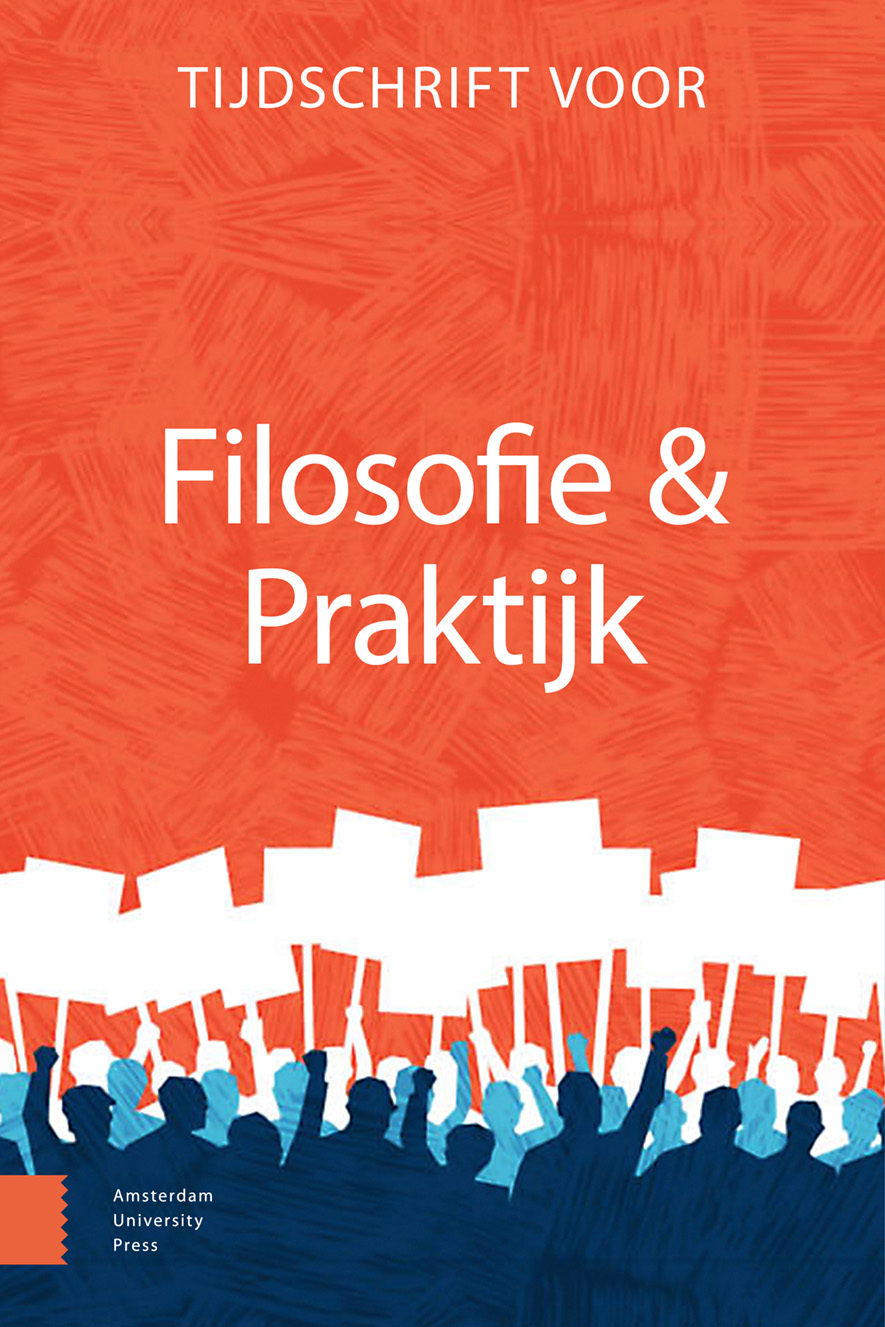- Home
- Publications
- Filosofie & Praktijk
- Previous Issues
- Volume 46, Issue 2, 2025
Filosofie & Praktijk - Volume 46, Issue 2, 2025
Volume 46, Issue 2, 2025
- Artikel
-
-
-
Autonome kunst en haar (vermeende en werkelijke) morele grenzen
More LessAuthor: Rob van GerwenAbstractEmotivism is the ethical view that moral judgements are mere expressions of emotions. On the internet we find a radical variety of this view, exported from the social media, where expressions of emotions are treated as truths about matters. One expresses an emotion that one has had; since one had it, this is a fact and cannot be doubted; hence what provoked it must have occurred, too. A claim to truth is hidden in this radical emotivism, which also entails that the appeals following from these emotions, too, are justified. Now, cancelling people on the basis of hear-say is problematic as such, particularly in the absence of legal support for the events that allegedly caused the emotions. Where art is concerned, however, what is really sacrificed is the autonomy of art as such. In this article I discuss the nature and importance of this autonomy, and show that radical emotivism is problematic in its own terms.
-
-
-
Het morele en het artistieke oordelen over kunstwerken
More LessAuthor: Leen VerheyenAbstractHow should we deal with works of art that are attributed great artistic value, but at the same time express values that are considered morally problematic today? In other words, what should we do with canonical works of art that today are seen as racist, sexist, etc.? Using Joseph Conrad’s Heart of Darkness, a novel first praised for its critique of colonialism but later criticised as racist, I discuss three answers to the question of how we can understand the relationship between moral and artistic qualities of such works of art.
-
-
-
De oerkreet van Louis-Ferdinand Céline
More LessAuthor: Ruud WeltenAbstractThe article pits the controversial oeuvre of French writer Louis-Ferdinand Céline against the contemporary discussion on wokeness. The question is not whether Céline is still ‘acceptable’, but how we can understand his mysogeny and anti-Semitism from his literature. It is argued that it is impossible to keep his literary work and his anti-Semitism separate. The relationship between Céline and the Jewish literary scholar Milton Hindus, who tried to penetrate Celine’s anti-Semitism early on, is discussed. Finally, through the philosophy of Julia Kristeva and through a comparison with Antonine Artaud’s writing, an attempt is made to understand Céline’s anti-Semitism literarily.
-
-
-
Muziek en antisemitisme – van Wagner tot Gaza
More LessAuthor: Albert van der SchootAbstractRichard Wagner was Hitler’s favourite composer, but also his example in motivating his hatred towards Jews. Both claim that the cultural area is poisoned since Jews occupy all key positions. The Entartete Musik exhibition of 1938 illustrates how anti-Semitism can disguise as music criticism, to expose what the Nazis considered degenerate music. Both Jewish composers and black jazz musicians became victims of their racist ideology. After the war, the question was raised whether compositions by Wagner or Richard Strauss should be banished from the stage – in the Netherlands, but even more so in Israel. Daniel Barenboim’s West-Eastern Divan Orchestra tries to bridge the gap between Jews and Arabs; the current conflict, however, only widens that gap. Popular Israeli hip-hop songs glorifying the extermination of the Gaza population show strong similarities with the Nazi songs of the thirties. The concept of ‘anti-Semitism’ has lost its proper meaning here, since Arabs are as Semitic as Jews are.
-
-
-
Emil Nolde: ontaard en antisemiet
More LessAuthor: Wessel StokerAbstractThis article answers the question of how to deal with the works of the artist Emil Nolde (1867-1956) given his anti-Semitism and Nazism. I argue that a moral flaw of a work of art can sometimes be an aesthetic flaw of a work of art. A work of art is always aesthetically flawed insofar as it possesses an ethical flaw which is aesthetically relevant. To answer this question, I first determine why the Nazi regime did not choose Nolde’s expressionism as Nazi art and even rejected Nolde’s works as degenerate. I will then discuss the question of whether Nolde also adapted his works in some way to Nazi ideology during the Nazi period. In answering both issues, I provide my answer to the question: how we can look at this artist’s work.
-
-
-
Controverse als lijfspreuk: Anti-esthetiek, institutionalisering en spiritualiteit in Marina Abramovićs performancekunst
More LessAuthor: Anne-Marie KorteAbstractFollowing a recent exhibition at the Stedelijk Museum Amsterdam (2024) on the life and work of Marina Abramović (Belgrade 1946), in this article Anne-Marie Korte discusses the career of the controversial Serbian performance artist from the perspective of gender and religious studies. Korte emphasises the spiritual nature of Abramović’s art as increasingly characteristic of her performance art, as well as the use of her own body as a medium, both conceptualised from a neoliberal individualist stance. Despite criticisms of her perceived commercialisation in the context of the increasing institutionalisation of her work, Korte invites a more nuanced view of Abramović as a performance artist, considering the boundaries her work explores in the areas of corporeality, artistic integrity, sexuality and spirituality.
-
-
-
Rrose Sélavy: Surrealistische aantekeningen bij woke
More LessAuthor: Marc De KeselAbstractIn the 1920s Marcel Duchamp started signing his art works with a new female ID: Rrose Sélavy. Can we argue that the artist is doing something ‘transgender’ here? And, in defiance of a century of historical distance, can we characterize his gesture as ‘woke’? This anachronistic question is the object of the thought experiment developed in this article. Taking Duchamp’s change into Rrose Sélavy for a woke-gesture avant la lettre, one is however invited as well to reflect upon the fundamentals of what ‘identity’ is. It more precisely forces us to consider the ‘surrealist’ condition of modern identity.
-
- Minima Philosophica
-
- Oneigentijdse Beschouwingen
-
Most Read This Month


